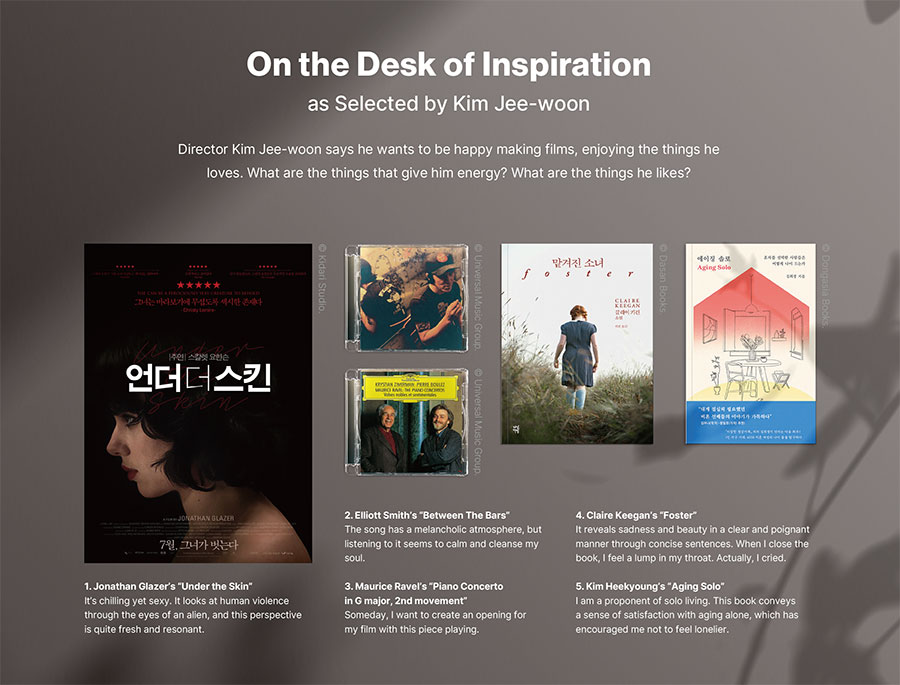Some directors’ films start to feel the same after a while, but not the films of Kim Jee-woon. His movies delve into unexplored genres, present original mise-en-scène, and evoke unfamiliar emotions. In short, they’re always a fresh experience; everything he makes feels brand-new. The reason Kim has been able to produce so many hits― including “A Tale of Two Sisters,” “A Bittersweet Life,” “The Good, the Bad, the Weird,” “I Saw the Devil,” “The Age of Shadows” and “Cobweb”―is because of the unique world of cinema he inhabits.
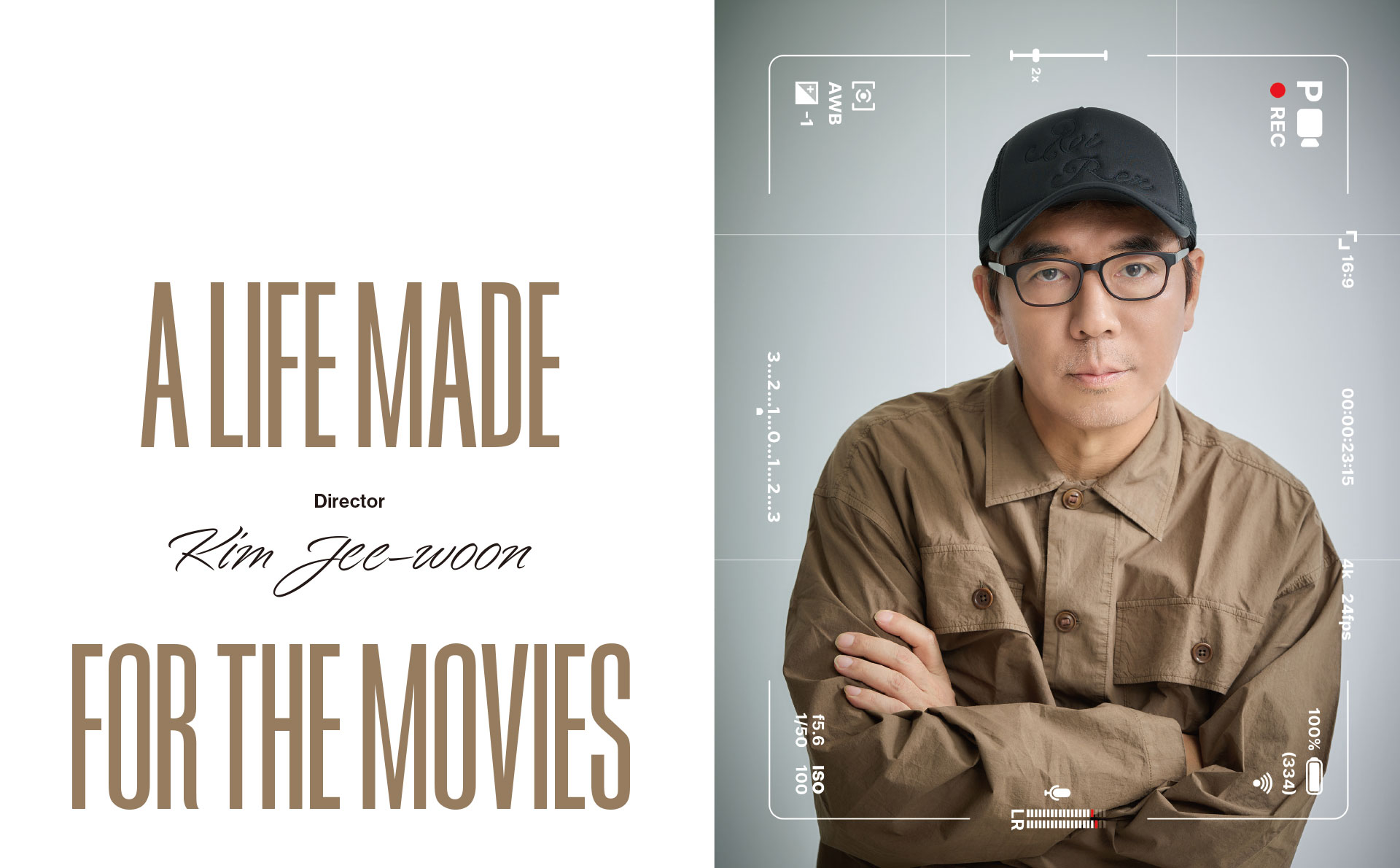
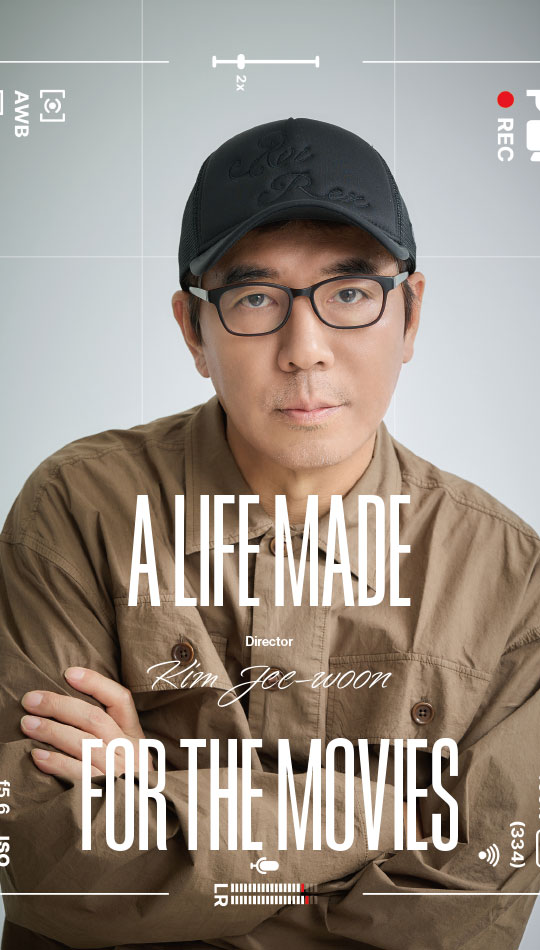
Writer.
Sung Ji Yeon
Photos courtesy of.
Anthology Studio
A Dramatic Start to a Cinematic Career
There’s something very cinematic about how Kim Jee-woon launched his film career. He’d drawn comics as a child and often stayed up late watching videos with his cinephile father. His father shared all kinds of trivia about the films and the actors who starred in them. As a natural result, he fell in love with cinema.
As a young adult, Kim didn’t jump straight into the movies. He bummed around until his mid-thirties when he figured he should find an enjoyable line of work. So he set his sights on the movies. He didn’t have a concrete goal, but he did have an overpowering desire to encounter new movies. So he saved up some money and bought a one-way ticket to Paris, a cinema paradise.
“I watched a hundred films over five months. I’d always prided myself on having watched a lot of movies, but the masterpieces and provocative films I saw transformed my understanding of the movies. I’d entered a world of prodigies, and I wanted to make that kind of film myself. That’s when I started dreaming of being a film director,” Kim says.
Upon returning to Korea with big dreams, Kim soon got into a car accident. He had to borrow money from a friend for car repairs and entered a screenplay competition with the hope of paying his friend back. The screenplay he hastily threw together ended up winning the competition, as did his next screenplay. That prizewinning screenplay was called “The Quiet Family,” which ended up being the first film Kim directed.
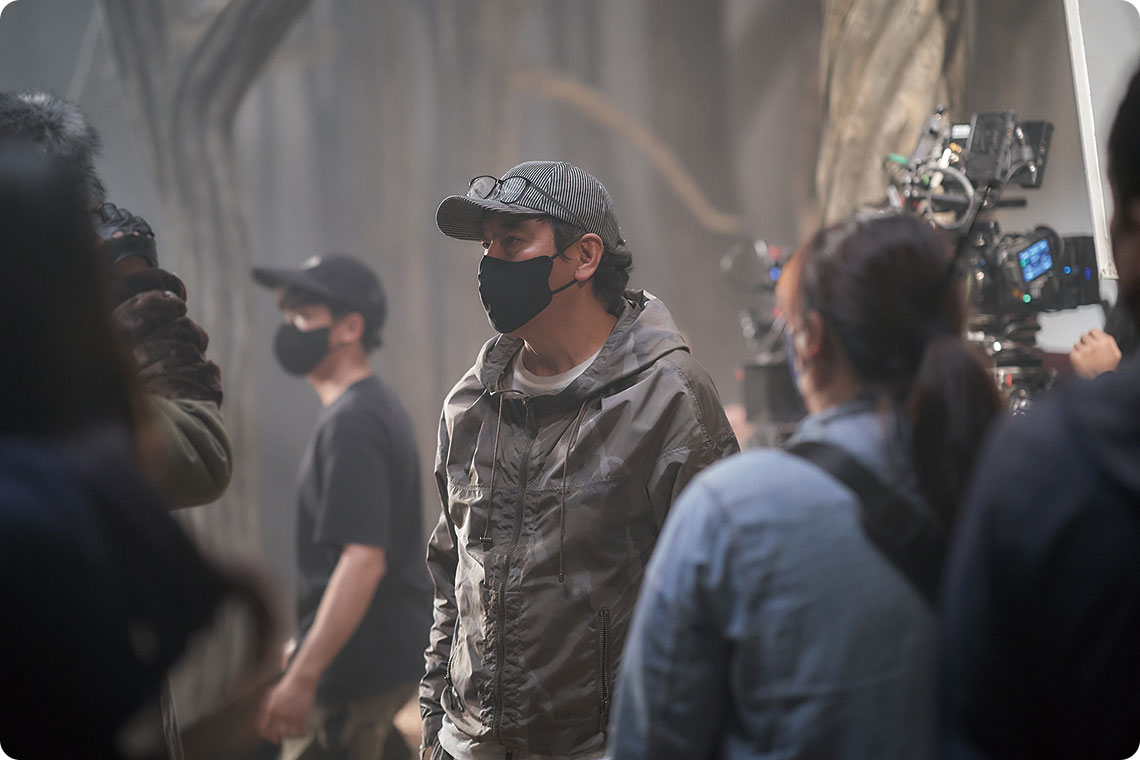
Only One Audience that Matters
Kim’s directorial debut made a splash in the world of Korean film. “The Quiet Family” was innovative on a generic level, combining elements of comedy and horror, while also telling a unique story. Kim’s filmography amounts to an ongoing exploration of genres including comedy (The Foul King), horror (A Tale of Two Sisters), noire (A Bittersweet Life), a Western-comedy hybrid (The Good, the Bad, the Weird), spy films (The Age of Shadows), sci-fi (Illang: The Wolf Brigade) and black comedy (Cobweb).
Exciting as Kim’s generic experimentation has been, it also raises the question of why he has floated from one genre to another. The answer is simple: Kim’s primary consideration in making a film is himself. “I really love genre films, so I wanted to make films in all my favorite genres. I was also curious about what would come out if I mixed the conventions and clichès of specific film genres with my own unique style. That curiosity is what drove my work.”
Since Kim regards the audience as unknowable and unpredictable, his only concern has been figuring out what films he would enjoy himself. “I have no idea what audiences want, so I just made the films I wanted to see. Some of my films have been box office successes, but I regard my films as being personal. In the future, I think I’ll keep focusing on what resonates powerfully inside me,” he says.
In short, the only audience to whom Kim gives much thought is himself. While making a movie, there are moments that demand compromise or abandonment of principles. Those are often the result of the lure of commercial success, the urge to tinker with a film to make it more interesting, and the reckless desire to achieve a beautiful shot. At times like these, Kim poses a few questions to his audience of one: What is truly necessary? What was my initial plan? These introspective conversations help clarify his original intentions.
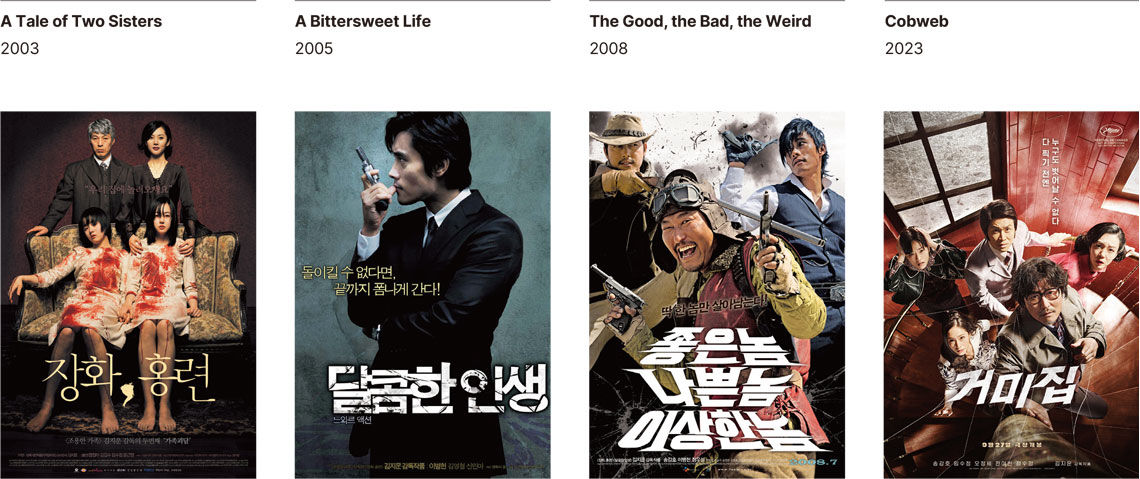
A Love-hate Relationship
The movies are Kim’s vocation and a powerful motivation for him, and he gets to make the kind of films he likes. But that doesn’t mean every moment is a delight. As a director, he has to pour himself into every stage of the filmmaking process.
While he’s working on the screenplay, Kim has to concentrate on the dialogue, situations and characters. Once filming begins, he has decisions to make about every aspect of the movie―locations, roles, extras and even hairstyling and makeup. Kim is responsible for providing the staff and cast with timely and accurate direction and can’t help wincing when actors look uncertain about his directions. Then he has to go through the endless process of making choices in the editing and mixing stages.
“The sheer number of decisions I have to make is exhausting, especially since I’m often not sure about things myself. I’m in a time crunch, with a hundred staffers waiting for my signal, and I have to sign off on all kinds of things. It feels like carrying around a ticking time bomb. So I’m loaded down with anxiety and worry until the movie comes out,” Kim explains.
Kim sometimes longs to leave the film industry because of disillusionment about making movies, shame about how he struggles to feel happy about doing something he loves and the unimproving results. But not surprisingly, movies are what inspire him to move again. “Watching a good movie helps with self-reflection. That’s when I realize I have no excuse for feeling disillusioned about these great works of cinema and regain the desire to make movies that follow in their footsteps.”
Whenever Kim shakes off those worries and takes on a new challenge, films remind him of why it’s all worth doing through landscapes, acting, camera movements and even something as simple as a beam of light. “There are times when I just gaze in wonder at what we film. Those are times when we capture superhuman acting, an enchanting landscape, or a charming rhythm. I find myself just whispering, ‘That’s insane!’ All the thrills were created by nature and the artists, not by me.”
Kim spent some incredible days at the Cinémathèque Française in Paris, the mecca of cinema, last year. He held a master class and a retrospective on his oeuvre in the city where his dream first bloomed. The best day of his life, Kim says, was when he had a seat reserved with his name engraved on it in the theater where he’d once imagined his films might someday be screened.
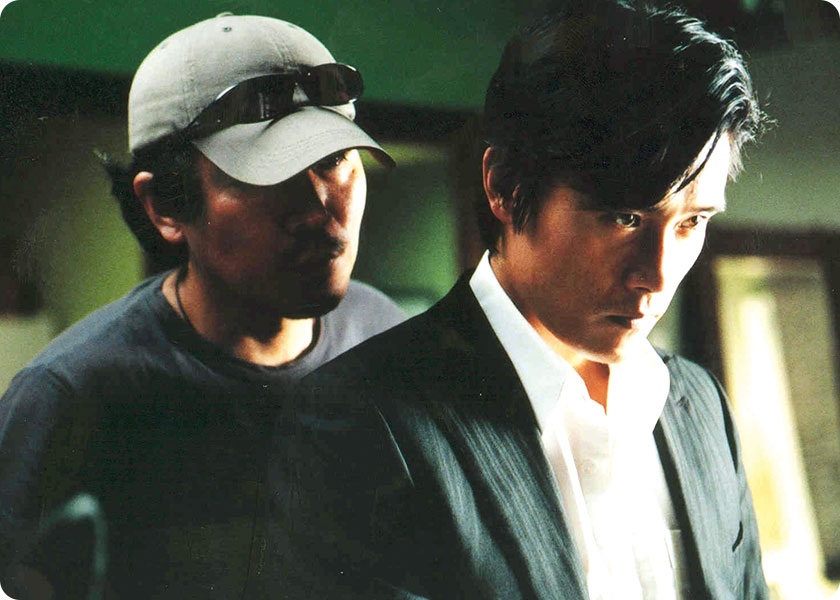
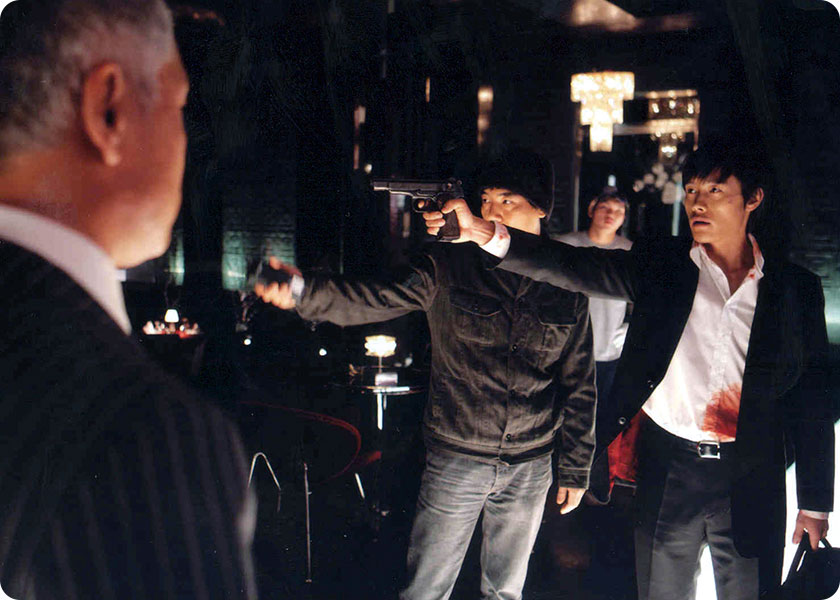 Kim Jee-woon directs during the filming of ‘Bittersweet Life’
Kim Jee-woon directs during the filming of ‘Bittersweet Life’Movies that Move You
Despite all the difficulties of making movies, they’re still capable of making Kim happy. That’s why, even now, he spends time thinking about the meaning of films. What’s a good movie, and how do you make one?
Kim says that movies should contain the four elements of love, understanding, experience and comfort. Love is finding someone you put before yourself; understanding is seeing things from someone else’s point of view; experience is digging deeper and broadening your horizons; comfort is gaining peace of mind.
A good movie, Kim says, can make you feel all four. Viewers’ “love” is kindled when a film stays in their mind even after they leave the theater. Their “understanding” is engaged when they adopt characters’ point of view. Their “experience” is broadened when they’re introduced to a new world. They find “comfort” when their hearts are full of emotion.
So what does it take to make a film capable of all that? “You need three scenes that reflect the distinctive rhythm of the work while grabbing viewers’ attention. If viewers are so absorbed in a film that they’re not the same when they come out of the theater, then you’ve got a good film. That can be either change of the mind or of the heart,” Kim says.
During the interview, he said that since his fascination with diverse genres has cooled, he’d like his next movies to put the finishing touches on the genres he’s tackled before. Right now, he’s working on a thriller about abnormal human psychology and a film about a family of criminals.
Kim insists he’s not an ambitious person. He just wants his life to be a suitable vessel for the talents he’s been given. Nobody knows when Kim may reach the limits of his talents. But given the astonishing appeal of everything he’s done so far, I can say in all honestly I’d be excited to watch a film that pushed his capabilities to the limits. I can only hope he’ll keep experimenting and exploring the inner reaches of his mind just as he’s always done.
